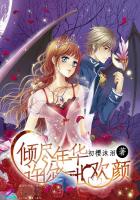This state of things, as we have seen, finds its parallel in musical art, since music can be written in prose themes or in versified tunes; only here nobody dreams of disputing the greater difficulty of the prose forms, and the comparative triviality of versification.Yet in dramatic music, as in dramatic literature, the tradition of versification clings with the same pernicious results; and the opera, like the tragedy, is conventionally made like a wall paper.The theatre seems doomed to be in all things the last refuge of the hankering after cheap prettiness in art.
Unfortunately this confusion of the decorative with the dramatic element in both literature and music is maintained by the example of great masters in both arts.Very touching dramatic expression can be combined with decorative symmetry of versification when the artist happens to possess both the decorative and dramatic gifts, and to have cultivated both hand in hand.Shakespeare and Shelley, for instance, far from being hampered by the conventional obligation to write their dramas in verse, found it much the easiest and cheapest way of producing them.But if Shakespeare had been compelled by custom to write entirely in prose, all his ordinary dialogue might have been as good as the first scene of As You Like It; and all his lofty passages as fine as "What a piece of work is Man!", thus sparing us a great deal of blank verse in which the thought is commonplace, and the expression, though catchingly turned, absurdly pompous.The Cent might either have been a serious drama or might never have been written at all if Shelley had not been allowed to carry off its unreality by Elizabethan versification.Still, both poets have achieved many passages in which the decorative and dramatic qualities are not only reconciled, but seem to enhance one another to a pitch otherwise unattainable.
Just so in music.When we find, as in the case of Mozart, a prodigiously gifted and arduously trained musician who is also, by a happy accident, a dramatist comparable to Mohere, the obligation to compose operas in versified numbers not only does not embarrass him, but actually saves him trouble and thought.No matter what his dramatic mood may be, he expresses it in exquisite musical verses more easily than a dramatist of ordinary singleness of talent can express it in prose.Accordingly, he too, like Shakespeare and Shelley,leaves versified airs, like Dalla sua pace, or Gluck's Che fare senza Euridice, or Weber's Leise, leise, which are as dramatic from the first note to the last as the untrammelled themes of The Ring.In consequence, it used to be professorially demanded that all dramatic music should present the same double aspect.The demand was unreasonable, since symmetrical versification is no merit in dramatic music:
one might as well stipulate that a dinner fork should be constructed so as to serve also as a tablecloth.It was an ignorant demand too, because it is not true that the composers of these exceptional examples were always, or even often, able to combine dramatic expression with symmetrical versification.Side by side with Dalla sua pace we have Il mio tesoro and Non mi dir, in which exquisitely expressive opening phrases lead to decorative passages which are as grotesque from the dramatic point of view as the music which Alberic sings when he is slipping and sneezing in the Rhine mud is from the decorative point of view.Further, there is to be considered the mass of shapeless "dry recitative" which separates these symmetrical numbers, and which might have been raised to considerable dramatic and musical importance had it been incorporated into a continuous musical fabric by thematic treatment.Finally, Mozart's most dramatic finales and concerted numbers are more or less in sonata form, like symphonic movements, and must therefore be classed as musical prose.And sonata form dictates repetitions and recapitulations from which the perfectly unconventional form adopted by Wagner is free.On the whole, there is more scope for both repetition and convention in the old form than in the new;and the poorer a composer's musical gift is, the surer he is to resort to the eighteenth century patterns to eke out his invention.















